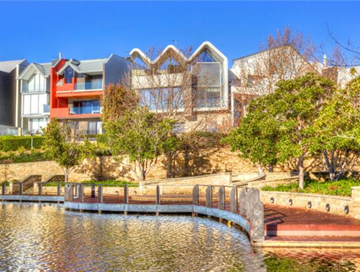As seen in The West Real Estate
We’re in the midst of property boom and one question REIWA is often asked is: when will it end?
The property market goes through cycles that include peaks, troughs and periods of growth, stabilisation and decline. There is no such thing as a normal property cycle - the length between the peaks and troughs can vary depending on the factors affecting the market, as can the magnitude of the peaks and troughs. Our last downturn lasted five years.
Each housing cycle has a catalyst, at both the onset of the upswing and the downturn. The catalyst may be changes in interest rates; fiscal policy adjustments such as the availability of grants or concessions or changes to taxation; or economic factors such as the global financial crisis, strong population growth or a decline in the resources sector. The market’s response to this can vary.
It is extremely hard to predict changes in the property cycles.
Market recoveries are generally easier to see coming and may be indicated by declines in the number of active listings for sale or rental vacancy rates, faster sales, or improvements to housing affordability due to rising wages or falling interest rates. The downturns invariably come out of left field.
The voracity of the current boom is a function of the length of the last downturn and what happened then. New home construction decreased during that time and tradies left the industry. While the COVID building incentives encouraged many people to build, material and labour shortages drove prices up and extended build times. Confidence in building fell and people turned to the established homes market, pushing up prices. Builders were also impacted by rising costs and are currently reluctant to build beyond capacity, which is maintaining the property shortage. That’s challenging enough for the market, but when you add in strong population growth, prices soar.
But the old farmers say “there is always a leveller” – what goes up will come down.
Will prices decline? Yes, at some point. By how much? That’s impossible to tell, but the next downturn will reflect the length of this boom.
What does this mean for you? If you’re wanting to buy, don’t sit around hoping for prices to fall. Current indicators suggest growth will continue for some time. But be prudent, buy when you can afford to and buy what you can afford. Don’t overextend yourself.
If you have a home, never miss an opportunity to work on your bottom line. Pay more off your mortgage, even if it’s just an extra $10 per week, and build up some equity. Save what you can and create a financial buffer should interest rates rise further. Ask your bank for a rate reduction and consider refinancing if it will put you ahead.
Joe White
REIWA President
.tmb-imgwidgetm.jpg?sfvrsn=d0e25b7a_1)




.tmb-rcarousel.jpg?sfvrsn=d38b03f0_1)




.tmb-rcarousel.jpg?sfvrsn=b4b9111_1)